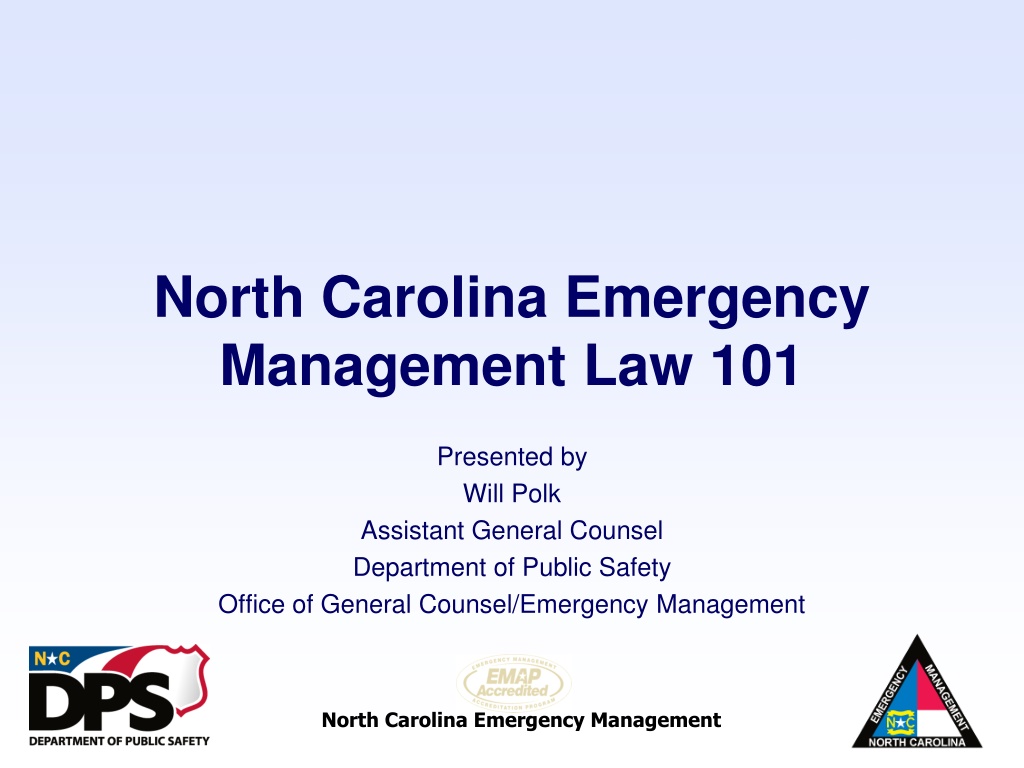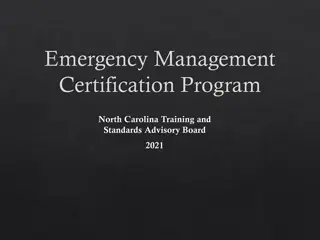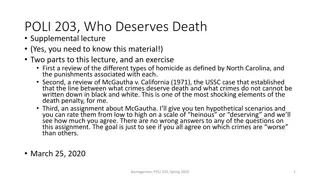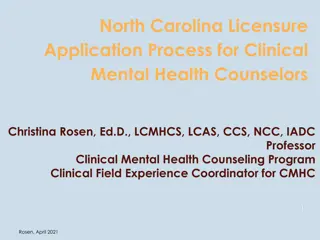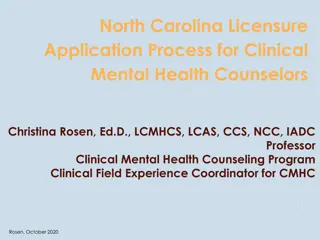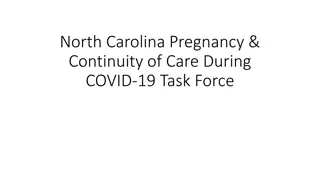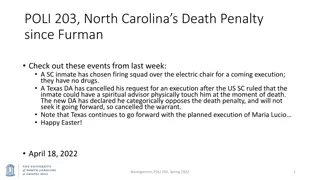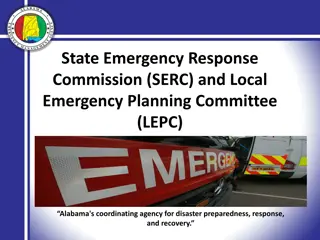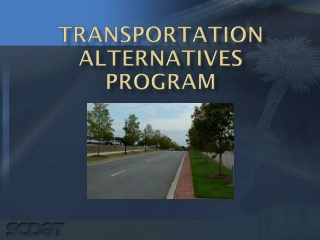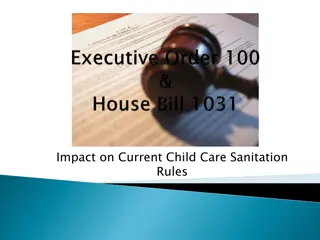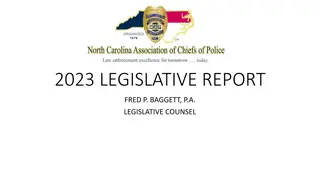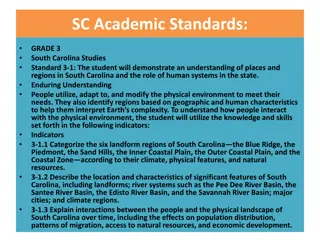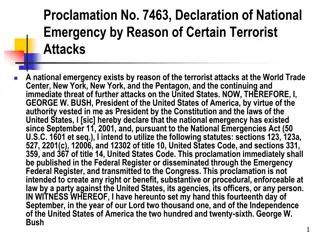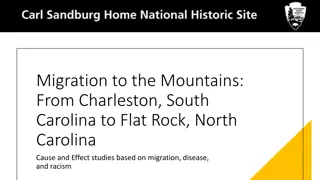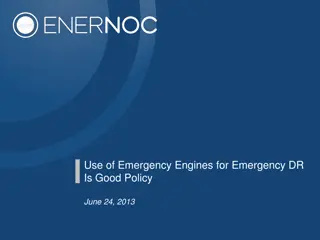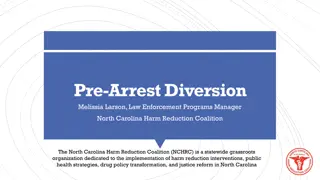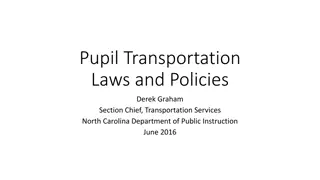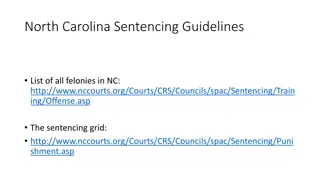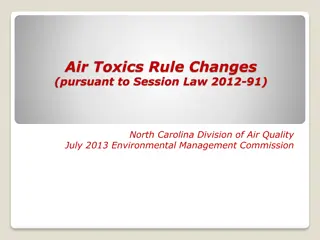Understanding North Carolina Emergency Management Law 101
The North Carolina Emergency Management Law 101, presented by Will Polk, Assistant General Counsel, delves into the measures taken by governments and the populace at various levels to minimize the adverse effects of emergencies. The law covers the planning, prevention, mitigation, warning, movement, shelter, emergency assistance, and recovery aspects of emergency management. It emphasizes the organization and management of resources and responsibilities for handling emergencies comprehensively and in a coordinated manner. The North Carolina Emergency Management Act, outlined in Chapter 166A of the General Statutes, aims to reduce vulnerability, prepare for rescues and care, facilitate rehabilitation, and ensure cooperation in emergency management activities.
Download Presentation

Please find below an Image/Link to download the presentation.
The content on the website is provided AS IS for your information and personal use only. It may not be sold, licensed, or shared on other websites without obtaining consent from the author. Download presentation by click this link. If you encounter any issues during the download, it is possible that the publisher has removed the file from their server.
E N D
Presentation Transcript
North Carolina Emergency Management Law 101 Presented by Will Polk Assistant General Counsel Department of Public Safety Office of General Counsel/Emergency Management North Carolina Emergency Management
Emergency Management Law 101 G.S. 166A-19.3(8) Emergency management. - Those measures taken by the populace and governments at federal, State, and local levels to minimize the adverse effect of any type emergency, which includes the never-ending preparedness cycle of planning, prevention, mitigation, warning, movement, shelter, emergency assistance, and recovery. The organization and management of resources and responsibilities for dealing with all aspects of emergencies, in particularly preparedness, response and rehabilitation. Emergency management involves plans, structures and arrangements established to engage the normal endeavors of government, voluntary and private agencies in a comprehensive and coordinated way to respond to the whole spectrum of emergency needs. This is also known as disaster management. North Carolina Emergency Management
Emergency Management Law 101 North Carolina Emergency Management
Emergency Management Law 101 The NC Emergency Management Act is found in Chapter 166A of the North Carolina General Statutes. Purpose of the Act (G.S. 166A-19.1) is the following: 1. Reduce vulnerability of people and property. 2. Prepare for prompt and efficient rescue, care, and treatment of threatened or affected persons. 3. Provide for the rapid and orderly rehabilitation of persons and restoration of property. 4. Provide for cooperation and coordination of activities relating to emergency management of this State, other states, local and federal government, interstate organizations, and with private and non-governmental organizations. North Carolina Emergency Management
Emergency Management Law 101 Definitions 19.3(6) Emergency. - An occurrence or imminent threat of widespread or severe damage, injury, or loss of life or property resulting from any natural or man- made accidental, military, paramilitary, terrorism, weather-related, public health, explosion-related, riot-related cause, or technological failure or accident, including, but not limited to, a cyber incident, an explosion, a transportation accident, a radiological accident, or a chemical or other hazardous material incident. 19.3(7) Emergency area. - The geographical area covered by a state of emergency. 19.3(3) Disaster declaration. - A gubernatorial declaration that the impact or anticipated impact of an emergency constitutes a disaster of one of the types enumerated in G.S. 166A-19.21(b) North Carolina Emergency Management
Emergency Management Law 101 166A-19.3(18) State Emergency Response Team. - The representative group of State agency personnel designated to carry out the emergency management support functions identified in the North Carolina Emergency Operations Plan. The State Emergency Response Team leader shall be the Director of the Division, who shall have authority to manage the Team pursuant to G.S. 166A-19.12(1), as delegated by the Governor. The Team shall consist of the following State agencies: a. Department of Public Safety. b. Department of Transportation. c. Department of Health and Human Services. d. Department of Environmental Quality. e. Department of Agriculture and Consumer Services. f. Any other agency identified in the North Carolina Emergency Operations Plan. North Carolina Emergency Management
Emergency Management Law 101 The Governor is head of the state emergency program and can delegate that power to the Secretary of Public Safety and the Division of Emergency Management. GS 166A-19.10 - Powers of the Governor Governor directs and controls all emergency management functions for state government, other than those that confer powers and duties to local governments. GS 166A-19.11 - Powers of the Secretary of Public Safety The Secretary executes the state s emergency operations plan and also recommends the appropriate level of disaster declaration after a preliminary damage assessment is done. GS 166A-19.12 Powers of the Division of Emergency Management Responsible for the day to day operations of the state emergency management operations program and the various duties assigned under the law, including drafting any executive orders, declarations, and regulations. North Carolina Emergency Management
Emergency Management Law 101 A common refrain in Emergency Management is that all disasters begin and end local. This is reflected in North Carolina law as well. Local Governments have express statutory responsibilities under the Emergency Management Act. G.S. 166A-19.15 1. Counties are responsible for emergency management, including coordinating with municipalities within the county. 2. Counties may establish and maintain emergency management agencies. 3. Municipalities may establish and maintain emergency management agencies. 4. Joint agencies are authorized. 5. Local governments can use property taxes to support their programs. 6. County governments are eligible for State and Federal Financial Assistance for their emergency management programs. North Carolina Emergency Management
Emergency Management Law 101 166A-19.20. Gubernatorial or legislative declaration of state of emergency. (a) resolution of the General Assembly, if either of these finds that an emergency exists. Declaration. - A state of emergency may be declared by the Governor or by a (b) emergency shall include a definition of the area constituting the emergency area. Emergency Area. - An executive order or resolution declaring a state of (c) this section shall expire when it is rescinded by the authority that issued it. Expiration of States of Emergency. - A state of emergency declared pursuant to (d) state of emergency has been declared pursuant to this section, the fact that a declaration of disaster type has not been issued shall not preclude the exercise of powers otherwise conferred during a state of emergency. Exercise of Powers Not Contingent on Declaration of Disaster Type. - Once a North Carolina Emergency Management
Emergency Management Law 101 166A-19.22. Municipal or county declaration of state of emergency. (a) Declaration. - A state of emergency may be declared by the governing body of a municipality or county, if either of these finds that an emergency exists. Authority to declare a state of emergency under this section may also be delegated by ordinance to the mayor of a municipality or to the chair of the board of county commissioners of a county. (b) Emergency Area. - The emergency area shall be determined in accordance with the following: (1) Unless another subdivision of this subsection is applicable, the emergency area shall not exceed the area over which the municipality or county has jurisdiction to enact general police-power ordinances. The governing body declaring the state of emergency may declare that the emergency area includes part or all of the governing body's jurisdiction. Unless the governing body declaring the state of emergency provides otherwise, the emergency area includes this entire jurisdiction, subject to the limitations contained in the other subdivisions in this subsection. (2) The emergency area of a state of emergency declared by a county shall not include any area within the corporate limits of any municipality, or within any area of the county over which a municipality has jurisdiction to enact general police-power ordinances, unless the municipality's governing body or mayor consents to or requests the state of emergency's application. Such an extension may be with respect to one or more of the prohibitions and restrictions imposed in that county pursuant to the authority granted in G.S. 166A-19.31 and need not be with respect to all prohibitions and restrictions authorized by that section. North Carolina Emergency Management
Emergency Management Law 101 (3) The board of commissioners or chair of the board of commissioners of any county who has been requested to do so by a mayor may by declaration extend the emergency area of a state of emergency declared by a municipality to any area within the county in which the board or chair determines it to be necessary to assist in the controlling of the emergency within the municipality. The extension may be with respect to one or more of the prohibitions and restrictions imposed in that mayor's municipality pursuant to the authority granted in G.S. 166A-19.31 and need not be with respect to all prohibitions and restrictions authorized by that section. Extension of the emergency area pursuant to this subdivision shall be subject to the following additional limitations: a. The extension of the emergency area shall not include any area within the corporate limits of a municipality, or within any area of the county over which a municipality has jurisdiction to enact general police-power ordinances, unless the mayor or governing body of that other municipality consents to its application. b. A chair of a board of county commissioners extending the emergency area under the authority of this subdivision shall take reasonable steps to give notice of its terms to those likely to be affected. c. The chair of the board of commissioners shall declare the termination of any prohibitions and restrictions extended pursuant to this subdivision upon the earlier of the following: 1. The chair's determination that they are no longer necessary. 2. The determination of the board of county commissioners that they are no longer necessary. 3. The termination of the prohibitions and restrictions within the municipality. d. The powers authorized under this subdivision may be exercised whether or not the county has enacted ordinances under the authority of G.S. 166A-19.31. Exercise of this authority shall not preclude the imposition of prohibitions and restrictions under any ordinances enacted by the county under the authority of G.S. 166A-19.31. (c) Expiration of States of Emergency. - Unless an ordinance adopted pursuant to G.S. 166A-19.31 provides otherwise, a state of emergency declared pursuant to this section shall expire when it is terminated by the official or governing body that declared it. (d) Effect of Declaration. - The declaration of a state of emergency pursuant to this section shall activate the local ordinances authorized in G.S. 166A-19.31 and any and all applicable local plans, mutual assistance compacts, and agreements and shall also authorize the furnishing of assistance thereunder. North Carolina Emergency Management
Emergency Management Law 101 Additional Powers During States of Emergency The Governor (G.S. 166A-19.30): 1. Can use all state resources to cope with disasters including transferring and direction of State agencies personnel and functions to deal with emergencies. 2. Can direct and control State and local law enforcement to carry out directives issued via Executive orders, rules and regulations made pursuant to emergency declaration. 3. Can take steps to help with installation of temporary housing from federal government. 4. Can relieve public officials subject to the provisions in State Constitution who have responsibilities under the Emergency Management act who willfully fails to obey an order, rule, or regulation adopted during the emergency. 5. Through issuance of an executive order to waive requirements for an environmental document or permit issued under Articles 1, 4, and 7 of Chapter 113A of the General Statutes for the repair, protection, safety enhancement, or replacement of a component of the State highway system that provides the sole road access to an incorporated municipality or an unincorporated inhabited area bordering the Atlantic Ocean or any coastal sound where bridge or road conditions as a result of the events leading to the declaration of the state of emergency pose a substantial risk to public health, safety, or welfare. North Carolina Emergency Management
Emergency Management Law 101 Additional Powers During the States of Emergency. With the concurrence of the Council of State the Governor has the following powers under G.S. 166A- 19.30(b) (not all of them will be listed): 1. 2. 3. 4. 5. Direct and compel evacuation of all or part of population from an area of state. Set the routes for an evacuation. Can establish a system of economic control over resources. Can control the flow of vehicular and pedestrian traffic. Waive any provision of any regulation or ordinance of a State agency or a political subdivision which restricts the immediate relief of human suffering. To appoint or remove an executive head of any State agency under certain circumstances. Procurement powers for emergency management without regard to the limitation of any existing law. 6. 7. North Carolina Emergency Management
Emergency Management Law 101 Additional Powers Under State of Emergency The Governor may assume control from local control is insufficient to assure adequate protection for lives and property if the following is shown: 1. Needed control cannot be imposed locally because local officials have not enacted appropriate ordinances. 2. Local authorities have not acted implemented steps to act on ordinances. 3. Emergency has spread across jurisdictions. 4. Scale of emergency is so great it has exceed local authorities to cope with it. If that is the case, the Governor can impose prohibitions and restrictions in the emergency area and take direction and control of State and local agencies. North Carolina Emergency Management
Emergency Management Law 101 What else does a State of Emergency allow for under NC law? This list is not exhaustive 1. Transportation Waivers for hours of service for commercial drivers under state and federal law. See G.S. 166A-19.70 and 49 CFR 390.23 and 49 CFR 395 for up to 30 days. 2. Allows for waivers of various rules and regulations under the Heath Care Facility Licensure Act. See G.S. 131E-112. 3. Provides qualified immunity for architects G.S. 83A-13.1 and engineering and land surveying professionals G.S. 89C-19.1 who volunteer their services during emergencies and disasters. 4. Allows for the Medical Board to waive their regulations under G.S. 90- 12.5 to in order to permit the provision of emergency health services to the public. North Carolina Emergency Management
Emergency Management Law 101 What else does a State of Emergency allow for under NC law? This list is not exhaustive 1. Allows for local governments to enact prohibitions and restrictions. G.S. 166A-19.31 2. These probations and restrictions are: a. Control movement of people in public places (curfew, evacuations, ingress and egress of an emergency area). b. Operations of offices, businesses etc., where people may congregate. c. Possession, sale, transportation, purchase and consumption of alcoholic beverages. d. Possession, sale, transportation, purchase, storage, use of gasoline and other dangerous weapons. Does not authorize prohibitions or restrictions on lawfully possessed firearms or ammo. e. Allow for other conditions that are reasonably necessary to maintain order. *Governor can also impose these restrictions through G.S. 166A-19.30(c). North Carolina Emergency Management
Emergency Management Law 101 What else does a State of Emergency allow for under NC law? Price Gouging Law 75-37. Declaration of State public policy. It is the public policy of this State to protect its citizens from price gouging during states of disaster. The State also realizes the difficulty in regulating prices while not defeating the ability of the market in goods and services from bringing supply back in balance with demand and not defeating the function of price in allocating scarce resources. North Carolina Emergency Management
Emergency Management Law 101 75-38. Prohibit excessive pricing during states of disaster, states of emergency, or abnormal market disruptions. (a) (Unfair and Deceptive Trade Practices Act) for any person to sell or rent or offer to sell or rent any goods or services which are consumed or used as a direct result of an emergency or which are consumed or used to preserve, protect, or sustain life, health, safety, or economic well-being of persons or their property with the knowledge and intent to charge a price that is unreasonably excessive under the circumstances. This prohibition shall apply to all parties in the chain of distribution, including, but not limited to, a manufacturer, supplier, wholesaler, distributor, or retail seller of goods or services. This prohibition shall apply in the area where the state of disaster or emergency has been declared or the abnormal market disruption has been found. Upon a triggering event, it is prohibited and shall be a violation of G.S. 75-1.1 North Carolina Emergency Management
Emergency Management Law 101 In determining whether a price is unreasonably excessive, it shall be considered whether: (1) by the seller's supplier or other costs of providing the good or service during the triggering event. The price charged by the seller is attributable to additional costs imposed (2) preceding 60 days before the triggering event. If the seller did not sell or rent or offer to sell or rent the goods or service in question prior to the time of the triggering event, the price at which the goods or service was generally available in the trade area shall be used as a factor in determining if the seller is charging an unreasonably excessive price. The price charged by the seller exceeds the seller's average price in the (3) commodity markets; fluctuations in applicable regional, national, or international market trends; or to reasonable expenses and charges for attendant business risk incurred in procuring or selling the goods or services. The price charged by the seller is attributable to fluctuations in applicable North Carolina Emergency Management
Emergency Management Law 101 (b) violation of this section and determines that the seller has not violated the provisions of this section and if the seller so requests, the Attorney General shall promptly issue a signed statement indicating that the Attorney General has not found a violation of this section. In the event the Attorney General investigates a complaint for a (c) the earlier of 45 days after the triggering event occurs or the expiration or termination of the triggering event unless the prohibition is specifically extended by the Governor. For the purposes of this section, the end of a triggering event is (d) emergency pursuant to Article 1A of Chapter 166A of the General Statutes or a finding of abnormal market disruption pursuant to G.S. 75- 38(e). A "triggering event" means the declaration of a state of North Carolina Emergency Management
Emergency Management Law 101 (e) actual or imminent, to the production, distribution, or sale of goods and services in North Carolina, which are consumed or used as a direct result of an emergency or used to preserve, protect, or sustain life, health, safety, or economic well-being of a person or his or her property. A significant disruption may result from a natural disaster, weather, acts of nature, strike, power or energy failures or shortages, civil disorder, war, terrorist attack, national or local emergency, or other extraordinary adverse circumstances. A significant market disruption can be found only if a declaration of a state of emergency, state of disaster, or similar declaration is made by the President of the United States or an issuance of Code Red/Severe Risk of Attack in the Homeland Security Advisory System is made by the Department of Homeland Security, whether or not such declaration or issuance applies to North Carolina. An "abnormal market disruption" means a significant disruption, whether (f) by the Governor pursuant to the definition in subsection (e) of this section. The duration of an abnormal market disruption shall be 45 days from the triggering event, but may be renewed by the Governor if the Governor finds and declares the disruption continues to affect the economic well-being of North Carolinians beyond the initial 45-day period. The existence of an abnormal market disruption shall be found and declared North Carolina Emergency Management
Emergency Management Law 101 G.S. 166A-19.70 (e) Abnormal Market Disruptions with Respect to Petroleum. - If the Governor declares the existence of an abnormal market disruption with respect to petroleum pursuant to G.S. 75-38(f), the Governor shall contemporaneously seek all applicable waivers under the federal Clean Air Act, 42 U.S.C. 7401, et seq., and any other applicable federal law to facilitate the transportation of fuel within this State in order to address or prevent a fuel supply emergency in this State. Waiver requests shall be directed to the appropriate federal agencies and shall seek waivers of the following: (1) The Reformulated Gasoline requirements throughout the State. (2) The Federal and State Implementation Plan summertime gasoline requirements (low RVP) throughout the State. (3) Any other waiver that will, if obtained, facilitate the transportation of fuel within this State. North Carolina Emergency Management
Emergency Management Law 101 After the response to an event we move to the recovery cycle on the wheel of emergency management. North Carolina Emergency Management
Emergency Management Law 101 166A-19.21 and 166A-19.41 Gubernatorial Disaster Declaration and State Emergency Assistance Funds. Step 1. Preliminary Damage Assessment (PDA) Secretary of the Department of Public Safety provides the Governor and General Assembly with a PDA as soon as possible. Step 2. Declaration of Disaster Governor declares a disaster and it is classified a either a Type I, Type II, or Type III. North Carolina Emergency Management
Emergency Management Law 101 Type I Disaster Declaration Two types of assistance: 1. Individual Assistance (IA) a. Temporary housing/rental assistance. b. Repair/replacement of dwelling. c. Replacement of personal property. d. Repair replacement of privately owned vehicles. e. Medical or dental expenses. f. Funeral or burial expenses resulting from emergency. g. Funding for the cost of first year s flood insurance to meet National Flood Insurance Act. 2. Public Assistance (PA) a. Debris clearance. b. Emergency protective measures . c. Roads and bridges. d. Crisis Counseling. e. Assistance with public transportation needs. North Carolina Emergency Management
Emergency Management Law 101 Type I Disaster Declaration continued: May be declared prior to or independent of any action taken by the SBA, FEMA or other agency, if all of the following criteria are met: 1. Local state of emergency has been declared and sent to Governor. 2. For IA, a PDA meets or exceeds the criteria for SBA Disaster Loan Program for IA. I can be met by one of 5 ways, most common is the following: a. At least 25 homes or 25 businesses, or a combination of at least 25 homes, businesses, or other eligible institutions. b. Each sustain uninsured losses of 40 percent or more of the estimated fair replacement value or pre-disaster fair market value of the damaged property, whichever is lower. North Carolina Emergency Management
Emergency Management Law 101 Type I Disaster Declaration continued: 3. For PA, the requirement is that the damage meets or exceeds the State infrastructure criteria for an eligible entity and shall show the following: a. Suffers minimum of $10,000 in uninsurable losses. b. The uninsurable losses in an amount equal to or exceeding one percent (1%) of the annual operating budget of the entity. c. Entity must have a hazard mitigation plan approved by FEMA pursuant to Stafford Act. d. Eligible entity shall be in the NFIP in order to receive PA for flooding damage. e. Eligible entities shall be required to provide a 25% match of the eligible costs of the public assistance grant. 4. A major disaster declaration by the President of the United States pursuant to the Stafford Act has not been declared. North Carolina Emergency Management
Emergency Management Law 101 Type I Disaster Declaration continued: Duration: -Expires 60 days after issuance unless renewed by the Governor or the General Assembly. -Increments of 30 days, not to exceed a total of 120 days from the date of issuance. North Carolina Emergency Management
Emergency Management Law 101 Type II Disaster Declaration -May be declared if the President of the United States has issued a major disaster declaration pursuant to the Stafford Act. -The Governor may request federal assistance without making a Type II disaster declaration. Types of State Assistance: -State Acquisition and Relocation Funds -Supplemental repair and replacement housing grants to locate person or family to safe, decent and sanitary housing, not to exceed $25,000 per family. Duration: -Expires 12 months after issuance unless renewed by the Governor or General Assembly. -Maybe renewed in increments of three months each, not to exceed a total of 24 months. North Carolina Emergency Management
Emergency Management Law 101 Type III Disaster Declaration May be declared if the President of the United States has issued a major declaration under the Stafford Act and either of the following is true: 1. The PDA indicates that the extent of damage is reasonably expected to meet the threshold for an increased federal share of distance assistance. 2. The PDA prompts the Governor to call a special session of the General Assembly to set up programs to meet unmet needs of individuals, businesses and political subdivisions affected by the emergency. Types of State Assistance: -State Acquisition and Relocation Funds -Supplemental repair and replacement housing grants to locate person or family to safe, decent and sanitary housing, not to exceed $25,000 per family. -Any programs authorized by the General Assembly. Duration: Shall expire 24 months after its issuance unless renewed by the General Assembly. North Carolina Emergency Management
Emergency Management Law 101 Expiration of a Type II and Type III disaster declaration shall not affect the State s obligation under federal-State agreements entered prior to the expiration of the disaster declaration. North Carolina Emergency Management
Emergency Management Law 101 So you are working an emergency or a declared disaster. What protections do you or your employees have when responding to an event? North Carolina Emergency Management
Emergency Management Law 101 G.S. 166A-19.60 All functions hereunder and all other activities relating to emergency management as provided for in this Chapter or elsewhere in the General Statutes are hereby declared to be governmental functions. Neither the State nor any political subdivision thereof, nor, except in cases of willful misconduct, gross negligence, or bad faith, any emergency management worker, firm, partnership, association, or corporation complying with or reasonably attempting to comply with this Article or any order, rule, or regulation promulgated pursuant to the provisions of this Article or pursuant to any ordinance relating to any emergency management measures enacted by any political subdivision of the State, shall be liable for the death of or injury to persons, or for damage to property as a result of any such activity. North Carolina Emergency Management
Emergency Management Law 101 For firms, partnership and associations immunity applies when: 1. EM services are provided as a result of SOE by Governor and provided under direction and control of Secretary of DPS 2. EM services are provide as a result of local government SOE and provided under direction and control of the county or municipality. 3. Engaging in planning, preparation, training or exercises with the Division of Public Health or governing body of county or municipality related to performance of EM services or measures. If the firm, partnership or association caused the emergency, then immunity will not apply. North Carolina Emergency Management
Emergency Management Law 101 License Requirements Suspended. - Any requirement for a license to practice any professional, mechanical, or other skill shall not apply to any authorized emergency management worker who shall, in the course of performing the worker's duties as such, practice such professional, mechanical, or other skill during a state of emergency. North Carolina Emergency Management
Emergency Management Law 101 166A-19.60 (e) "emergency management worker" shall include any full or part-time paid, volunteer, or auxiliary employee of this State or other states, territories, possessions, or the District of Columbia, of the federal government or any neighboring country or of any political subdivision thereof, or of any agency or organization performing emergency management services at any place in this State, subject to the order or control of or pursuant to a request of the State government or any political subdivision thereof. The term "emergency management worker" under this section shall also include any health care worker performing health care services as a member of a hospital-based or county-based State Medical Assistance Team designated by the North Carolina Office of Emergency Medical Services and any person performing emergency health care services under G.S. 90-12.2. Definition of Emergency Management Worker. - As used in this section, the term (f) management worker, as defined in this section, performing emergency management services at any place in this State pursuant to agreements, compacts, or arrangements for mutual aid and assistance to which the State or a political subdivision thereof is a party, shall possess the same powers, duties, immunities, and privileges the person would ordinarily possess if performing duties in the State, or political subdivision thereof, in which normally employed or rendering services. Powers of Individuals Operating Pursuant to Mutual Aid Agreements. - Any emergency North Carolina Emergency Management
Emergency Management Law 101 Other Liability Issues G.S. 166A-19.61. No private liability. Any person, firm, or corporation, together with any successors in interest, if any, owning or controlling real or personal property who, voluntarily or involuntarily, knowingly or unknowingly, with or without compensation, grants a license or privilege or otherwise permits or allows the designation or use of the whole or any part or parts of such real or personal property for the purpose of activities or functions relating to emergency management as provided for in this Chapter or elsewhere in the General Statutes shall not be civilly liable for the death of or injury to any person or the loss of or damage to the property of any persons where such death, injury, loss, or damage resulted from, through, or because of the use of the said real or personal property for any of the above purposes, provided that the use of said property is subject to the order or control of or pursuant to a request of the State government or any political subdivision thereof. North Carolina Emergency Management
Emergency Management Law 101 What if a person willfully ignores a warning in an emergency? 166A-19.62. Civil liability of persons who willfully ignore a warning in an emergency. In an emergency, a person who willfully ignores a warning regarding personal safety issued by a federal, State, or local law enforcement agency, emergency management agency, or other governmental agency responsible for emergency management under this Article is civilly liable for the cost of a rescue effort to any governmental agency or nonprofit agency cooperating with a governmental agency conducting a rescue on the endangered person's behalf if all of the following are true: (1) The person ignores the warning and (i) engages in an activity or course of action that a reasonable person would not pursue or (ii) fails to take a course of action that a reasonable person would pursue. (2) As a result of ignoring the warning, the person places himself or herself or another in danger. (3) A governmental rescue effort is undertaken on the endangered person's behalf. North Carolina Emergency Management
Emergency Management Law 101 How do government agencies help each other out? EMAC- Emergency Management Assistance Compact Article 4 of Chapter 166A of the N.C.G.S N.C.G.S. 166A-19.72 Establishment of Mutual Aid Agreements N.C.G.S 160A-288 Cooperation between law enforcement agencies N.C.G.S. 160A-318 Mutual Aid Contracts (primarily for utility restoration) N.C.G.S. 58-83-1 Mutual Aid Between Fire Departments North Carolina Emergency Management
Emergency Management Law 101 Common components of all the mutual aid laws in North Carolina: Terms of agreements may include: Furnishing or exchange of supplies Equipment Facilities Personnel Services needed Reimbursement for the aforementioned Indemnification of the aiding party for loss or damage incurred by giving aid. Authority on how to execute the mutual aid agreement North Carolina Emergency Management
Emergency Management Law 101 Establishment of each: State to Federal Government: Governor State to State: Governor State to counties/cities: Governor with concurrence of political subdivision governing body. NCDPS/NCEM delegated this function to execute. Political Subdivision to Political Subdivision: CEO of each political subdivision with concurrence of the subdivisions governing body may have reciprocal mutual aid agreements consistent with the State EMP. Counties/cites to other States: CEO of each political subdivision, with concurrence of governing body and approval of the Governor. North Carolina Emergency Management
Emergency Management Law 101 EMAC 166A-41. Purposes and authorities. (a) The purpose of this Compact is to provide for mutual assistance between the party states in managing any emergency or disaster that is duly declared by the governor of the affected state or states, whether arising from natural disaster, technological hazard, man-made disaster, civil emergency aspects of resources shortages, community disorders, insurgency, or enemy attack. (b) This Compact shall also provide for mutual cooperation in emergency-related exercises, testing, or other training activities using equipment and personnel simulating performance of any aspect of the giving and receiving of aid by party states or subdivisions of party states during emergencies, such actions occurring outside actual declared emergency periods. Mutual assistance in this Compact may include the use of the states' National Guard forces, either in accordance with the National Guard Mutual Assistance Compact or by mutual agreement between states. North Carolina Emergency Management
Emergency Management Law 101 EMAC -- 166A-44. Limitations. (b) Each party state shall afford to the emergency forces of any party state while operating within its state limits under the terms and conditions of this Compact, the same powers (except that of arrest unless specifically authorized by the receiving state), duties, rights, and privileges as are afforded forces of the state in which they are performing emergency services. Emergency forces will continue under the command and control of their regular leaders, but the organizational units will come under the operational control of the emergency services authorities of the state receiving assistance. These conditions may be activated, as needed, only subsequent to a declaration of a state of emergency or disaster by the governor of the party state that is to receive assistance or commencement of exercises or training for mutual aid and shall continue so long as the exercises or training for mutual aid are in progress, the state of emergency or disaster remains in effect, or loaned resources remain in the receiving state or states, whichever is longer. North Carolina Emergency Management
Emergency Management Law 101 EMAC -- 166A-46. Liability. Officers or employees of a party state rendering aid in another state pursuant to this Compact shall be considered agents of the requesting state for tort liability and immunity purposes; and no party state or its officers or employees rendering aid in another state pursuant to this Compact shall be liable for any act or omission occurring as a result of a good faith attempt to render aid or as a result of the use of any equipment or supplies used in connection with an attempt to render aid. For the purposes of this Article, "good faith" does not include willful misconduct, gross negligence, or recklessness. North Carolina Emergency Management
Emergency Management Law 101 EMAC -- 166A-47. Supplementary agreements. Inasmuch as it is probable that the pattern and detail of the machinery for mutual aid among two or more states may differ from that among the states that are party hereto, this instrument contains elements of a broad base common to all states, and nothing herein contained shall preclude any state from entering into supplementary agreements with another state or affect any other agreements already in force between states. Supplementary agreements may comprehend, but shall not be limited to, provisions for evacuation and reception of injured and other persons and the exchange of medical, fire, police, public utility, reconnaissance, welfare, transportation and communications personnel, and equipment and supplies. North Carolina Emergency Management
Emergency Management Law 101 Contact: Will Polk NC Department of Public Safety Office of General Counsel/ Emergency Management 919-219-4534 E-mail: will.polk@ncdps.gov Twitter: @PolkWork North Carolina Emergency Management
